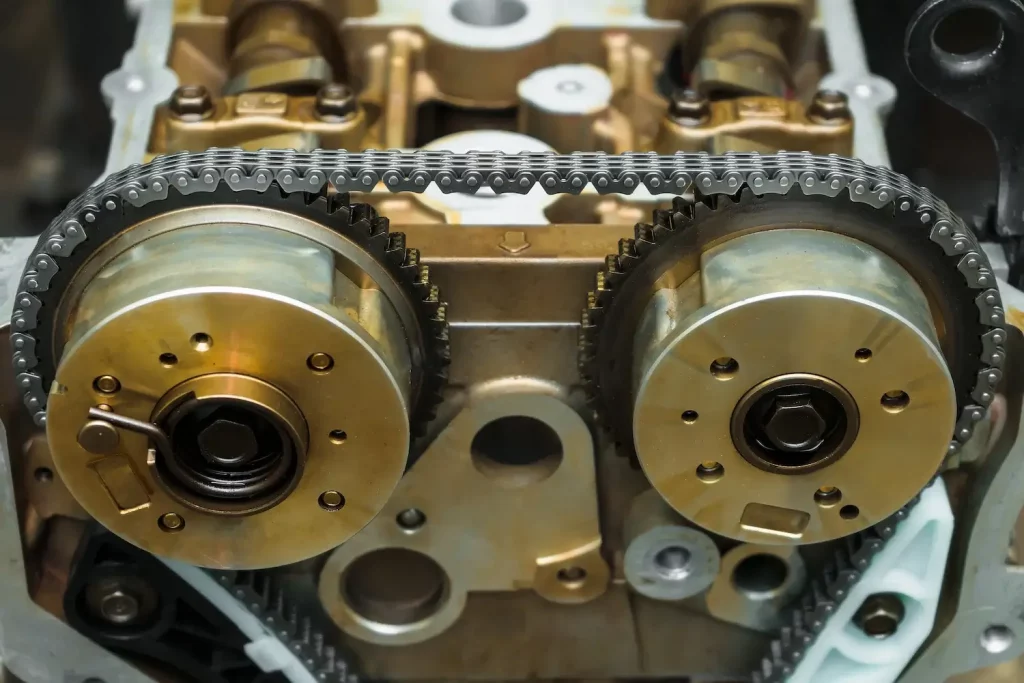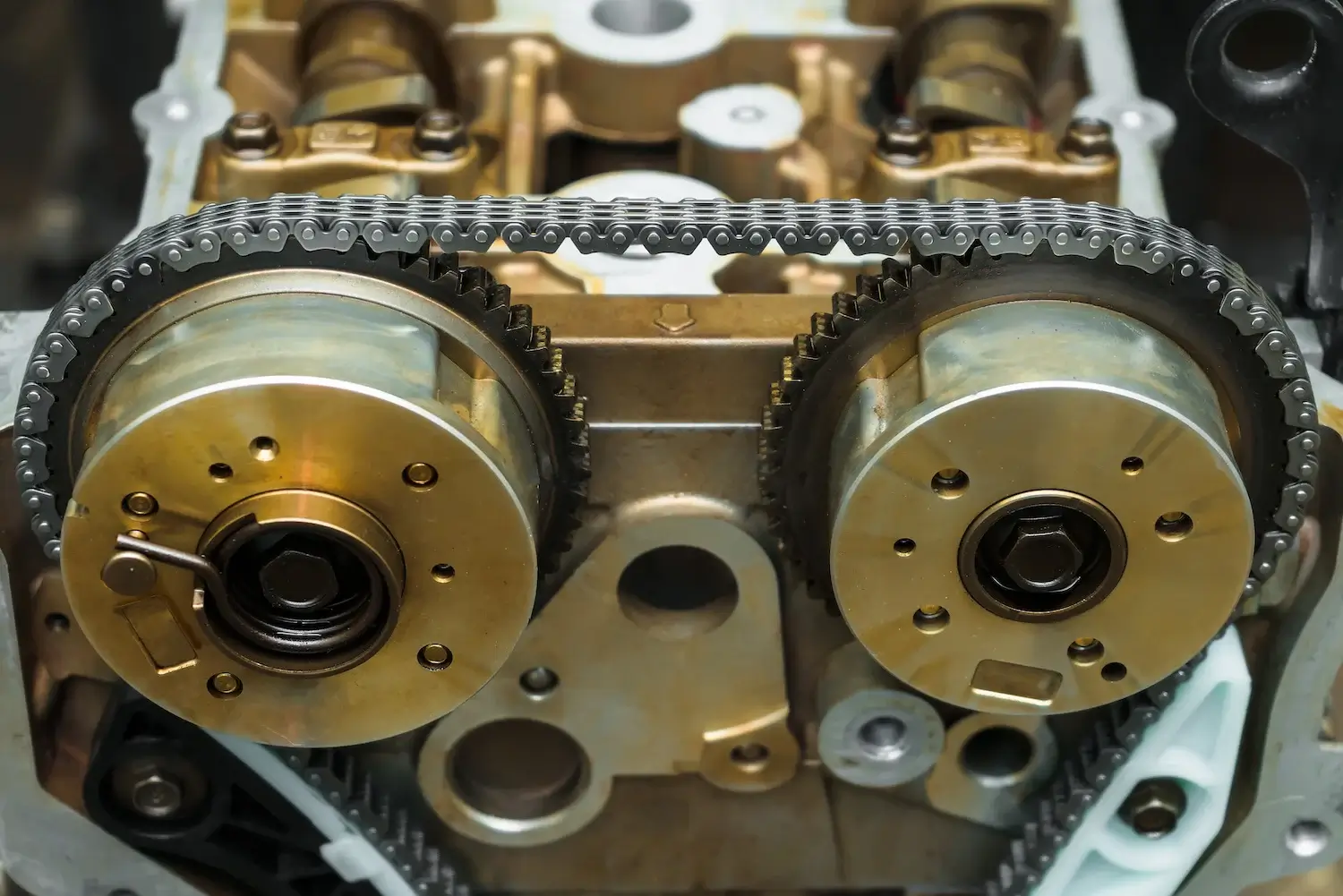
A well-functioning timing chain is essential for the proper operation of your vehicle’s engine. It ensures that all the components of your engine are in sync, allowing your car to run smoothly.
However, like any other part of your vehicle, timing chains can wear out over time, leading to a range of problems.
In this blog, we will explore the symptoms and causes of a bad timing chain and when it’s crucial to replace the timing chain to prevent further damage.
Symptoms of a Bad Timing Chain
1. Engine Misfires
One of the most common symptoms of a bad timing chain is engine misfires. When the timing chain stretches or wears out, it can lead to improper valve timing, causing the engine to misfire. This can result in poor fuel efficiency, loss of power, and a rough running engine.
2. Noisy Engine
A bad timing chain can produce a noticeable ticking or rattling noise coming from the engine. This noise usually increases in intensity as the engine RPMs rise, and it’s a clear sign that your timing chain may need attention.
3. Poor Acceleration
When the timing chain becomes worn or loose, your engine may experience delayed or sluggish acceleration. This symptom can be particularly noticeable when trying to accelerate quickly, such as when merging onto a highway.
4. Check Engine Light
A malfunctioning timing chain can trigger the check engine light on your dashboard. The engine control module (ECM) may detect timing-related issues and set a trouble code, indicating the need for diagnostics.
5. Reduced Fuel Efficiency
A bad timing chain can also lead to decreased fuel efficiency. The improper valve timing can cause the engine to work less efficiently, leading to higher fuel consumption.
Causes of Timing Chain Issues
- Normal Wear and Tear: Over time, a timing chain will naturally wear out and stretch. Regular maintenance is essential to prevent this from becoming a more serious problem.
- Lack of Maintenance: Neglecting regular oil changes and maintenance can accelerate timing chain wear and lead to premature failure.
- Oil Quality: Low-quality or contaminated engine oil can contribute to timing chain wear, as it fails to provide proper lubrication.
- Engine Overheating: High engine temperatures can damage the timing chain, causing it to weaken and stretch.
When to Replace the Timing Chain?
Determining the right time to replace your timing chain is crucial to prevent extensive engine damage. Here are some guidelines to follow:
- Follow Manufacturer Recommendations: Consult your vehicle’s owner’s manual for manufacturer-recommended intervals for timing chain replacement. This can vary from one vehicle to another but typically ranges from 90,000 to 160,000 km.
- Pay Attention to Symptoms: If you notice any of the symptoms mentioned earlier, have your vehicle inspected promptly. Addressing timing chain issues early can prevent more costly engine damage.
- Regular Maintenance: To extend the life of your timing chain, adhere to a regular maintenance schedule, including routine oil changes and engine inspections.
Prevent Engine Mishaps – Book Your Timing Chain Replacement or Repair
Are you experiencing any of the symptoms mentioned above, or are you approaching your vehicle’s recommended timing chain replacement interval?
Don’t take chances with your engine’s health.
Schedule a professional inspection and timing chain replacement now to ensure not only your vehicle runs smoothly and efficiently but also to avoid costly repairs down the road.
Don’t delay; act today!
